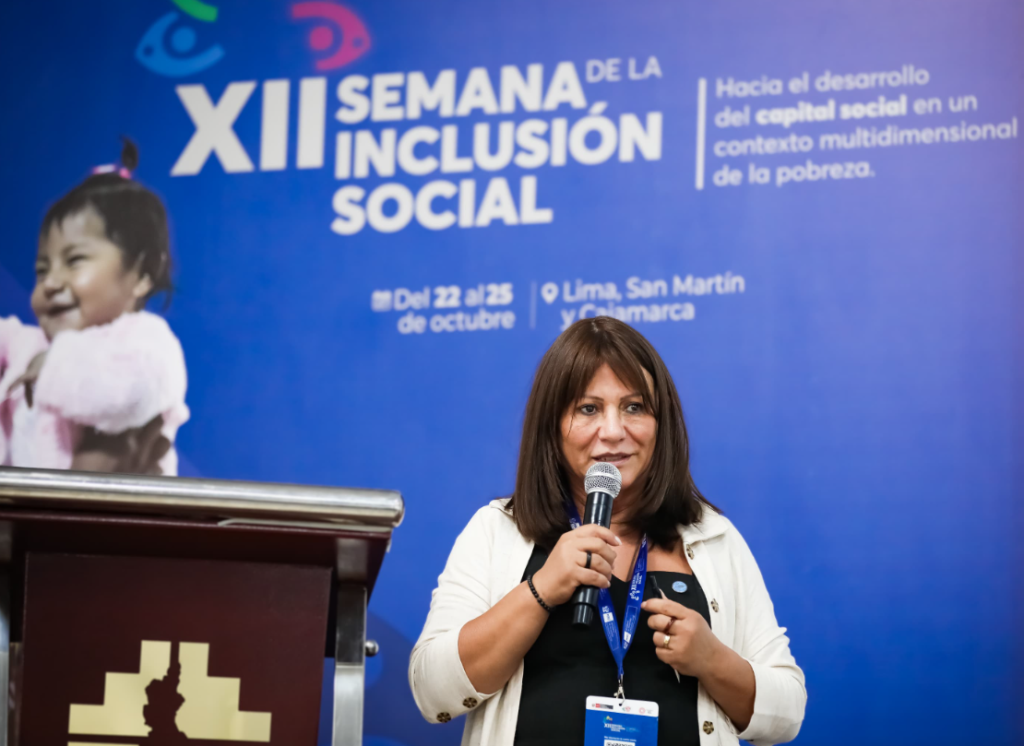During the event, the regional school feeding initiative promoted by the Brazil-FAO International Cooperation Programme was presented.
Paulo Beraldo and Palova Brito
Cajamarca, Peru – On October 24, within the framework of the XII Week of Social Inclusion, Najla Veloso, regional coordinator of the Brazil-FAO International Cooperation Programme in school feeding, participated in the thematic table “Food and Nutritional Security: Building a Healthy Future.” During her keynote speech titled “Food Security in Latin America and the Caribbean,” Veloso presented an overview of the current state of food insecurity in the region and the importance of school feeding programmes.
The cooperation on school feeding is jointly carried out by the FAO and the government of Brazil, through the National Fund for Educational Development (FNDE) and the Brazilian Cooperation Agency (ABC) since 2009.
According to Veloso, in 2022, 733 million people worldwide continued to suffer from hunger, highlighting that “there is still a lot of food and nutritional insecurity.” She explained that this situation is exacerbated by several factors, including the recent health crisis, climate change, social inequality, extreme poverty, and difficult access to healthy foods, as well as the high costs of adequate diets.

Regarding the Peruvian context, Veloso emphasized that 7% of the population faces undernutrition and that 43% of anemia cases affect children under three years old, underscoring the urgency of adopting measures to tackle these challenges. “Our responsibility is very great,” she noted, adding the commitment of FAO and countries to work towards transforming agri-food systems. She asserted that it is possible to change the landscape both in Peru and worldwide through public policies that promote sustainable food production and strengthen social protection.
During her intervention, she stressed the relevance of school feeding programmes to guarantee the human right to adequate nutrition, especially during the school period. “School feeding directly impacts the lives of students and the social development of countries.”
Veloso highlighted the Sustainable School Feeding Network (RAES – www.redraes.org) as a key strategy to support countries in overcoming their challenges. “Many countries have already made progress in their school feeding programmes, including Peru, but there is still much to be done”, she stated. The coordinator also announced that Peru is one of the countries that has already formalized its membership in this network. She added that in the region, 7 countries have already approved school feeding laws, emphasizing the role of Brazil-FAO International Cooperation in this scenario.
In her closing message, Veloso reiterated the importance of strengthening local economies through the purchase of food from short supply circuits, highlighting that “public procurement is an opportunity to close gaps” and contribute to the development of rural communities. The event, which focused on the multiple dimensions of poverty and innovative strategies to overcome it, provided a space for exchanging experiences and knowledge. The goal was to strengthen the commitment of the actors involved in building a more just and equitable Peru.







